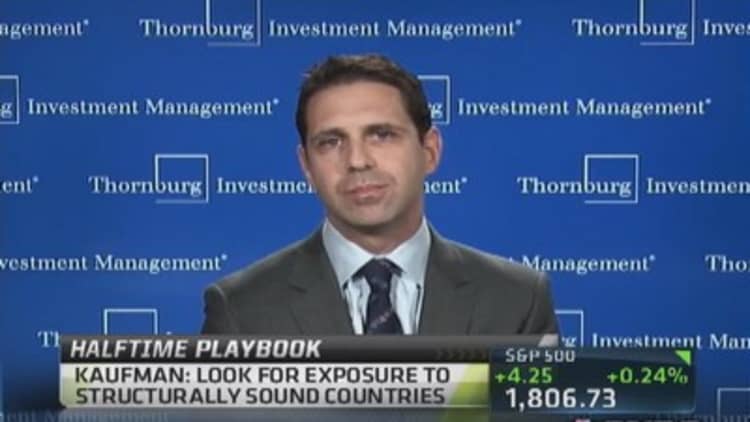After several months of market volatility, emerging markets were given a respite when the U.S. Federal Reserve decided to delay tapering its asset purchases, but some may be squandering the chance to address economic reform.
"An improvement in government finances would leave countries less vulnerable to future bouts of market turmoil. It would also give them more scope to counter future economic downturns," said Krystal Tan and Daniel Martin, economists at Capital Economics, in a note.
"Some of the governments that most need to rein in their deficits to help their economies withstand future bouts of market volatility are showing the least willingness to do so," they said, citing India and Thailand.
(Read more: Emerging market reprieve is only temporary: Pimco)
After the Fed first broached the possibility it would begin tapering its $85 billion-a-month asset-purchase program in May, emerging market stocks and currencies convulsed amid fund outflows. Countries with perceived imbalances, such as current account and fiscal deficits, including India, Indonesia and Thailand, were among the hardest hit.
Markets stabilized and many recovered solidly in September after the Fed decided to keep its asset purchases steady and economists pushed back their tapering expectations to 2014.
For example, Indonesian shares fell around 27 percent from their May peaks to their late August lows; in September, they climbed around 25 percent from those lows, but have since given back much of the recovery. The rupiah has lost around 24 percent of its value against the U.S. dollar this year.
(Read more: Will Fed crush emerging markets? The big debate)

"On the fiscal front at least, Thailand and India even seem to be moving in the wrong direction," Tan and Martin said, citing Bangkok's unwillingness to roll back rice subsidies and India's recent food subsidy bill.
Thailand's multi-billion-dollar rice-subsidy program buys rice from farmers at much higher than market rates, aiming to increase rural incomes to stimulate consumption. In 2012, the resulting rice price increase cost Thailand its three-decade-long status as the world's top rice exporter. A state bank this month needed to issue a more than $2 billion bond to close the program's funding gap and resume stalled payments to farmers.
Concerns are affecting investor sentiment. "We're not at all interested in Thailand at this point," Clay Carter, head of international equities at Perennial Investment Partners, told CNBC. "The economy is kind of going backwards." Perennial has around $18 billion under management.
(Read more: Emerging markets get no love even as US bats up record highs)
India's food subsidy bill, passed in August, is expected to cost the country $19.8 billion a year. The government's fiscal deficit in 2012-2013 was 4.9 percent of its gross domestic product. India plans to borrow roughly $100 billion this year (not including the new program) to plug that gap.
Indonesia may be the odd-man out. While most other regional markets have seen solid recoveries from their taper-tantrum lows since September, Indonesia's stock markets have given back much of those gains and the rupiah has weakened to fresh multi-year lows, flirting with 12,000 to the U.S. dollar.
Unlike some regional peers, Indonesia has taken steps to address its twin fiscal and current account deficits, including raising interest rates, instructing banks to moderate loan growth and increasing import tariffs, Erwan Teguh, an economist at CIMB, told CNBC.
(Watch: Is the emerging market story still alive?)
Rupiah weakness is partly due to seasonal factors, such as year-end dollar demand for fuel purchases, he said, adding the stock market isn't a good indicator of the economy. He noted outflows from shares are dwarfed by recent flows into rupiah-denominated bonds.
Indonesia has shown some willingness to make reforms, Capital Economics' Martin told CNBC.
"They're doing more than Thailand and India certainly, but they're hardly making great strides and there's a chance of slippage," he said. "There's a great deal of uncertainty because you never know with an election" set for next year.
Indeed, investors may once again begin to pull funds out of these countries, Martin noted.
But he added, "even if we do see some short-term capital outflows during the commotion caused by tapering, it will be fairly short-term." He expects flows will continue to come to Asia as it still offers higher growth rates than developed markets.
— By CNBC's Leslie Shaffer. Follow her on Twitter: @LeslieShaffer1

